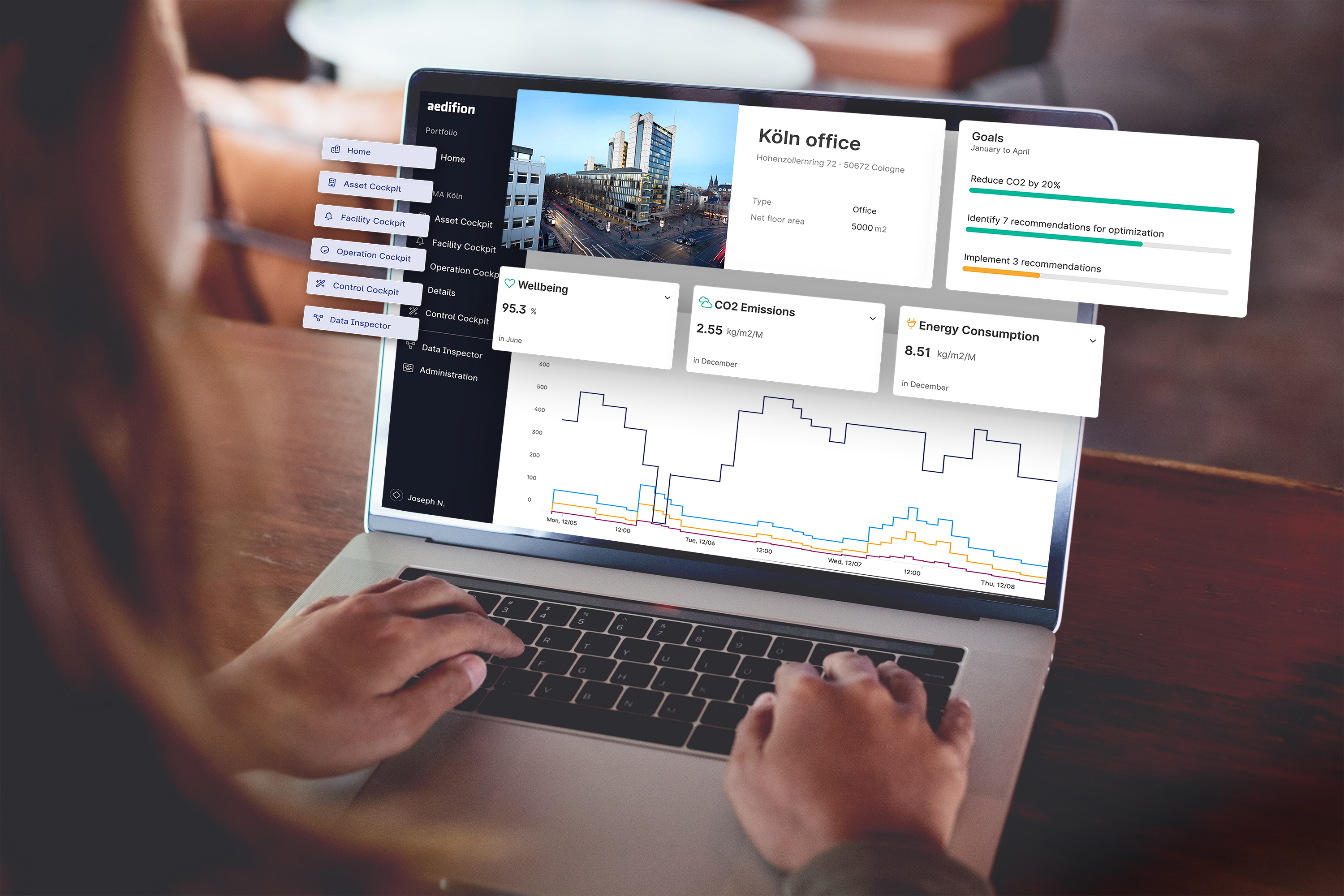2023-11-30
Allocation of Software Solutions for Building Operations - How Tenants, Operators and Owners Benefit

Much of our work and leisure time is spent in buildings such as traditional homes, offices and industrial buildings, schools, libraries, hospitals and other public institutions. It is therefore no surprise that buildings account for around 40 % of energy consumption in the EU and that there is an urgent need for action in this area.
Especially in commercial buildings, optimizing operations through the use of cutting-edge software solutions not only helps to meet the targets set out in the European Green Deal, but also promotes sustainable cost savings that can benefit tenants, operators and owners alike through cost allocation.
The Allocation of Software Operating Costs Creates a Win-Win-Win Situation
The property sector represents a huge market for decarbonization and digitization services. By using this type of software, building operations can be optimized digitally, easily and permanently. Although it may seem too good to be true, operational optimization software improves and monitors operations, technical building equipment and energy systems across a portfolio, while reducing energy costs for tenants.
Often delivered as a SaaS solution, monthly license fees can be rolled into tenants' ongoing operating costs, giving them the benefits of effective operations. Shared energy expenses are minimized, rooms are no longer needlessly heated, and shading is automatically applied long before a building heats up. Energy is used in a demand-driven manner, resulting in less energy being wasted and a reduction in the ancillary costs for the tenants. Costs associated with CO2 emissions are also reduced.
The Legal Basis
The Operating Costs Ordinance (BetrKV)
In Germany, the Operating Costs Ordinance (Betriebskostenverordnung, BetrKV) regulates which costs can be passed on to tenants. This requires the allocation to be agreed in the rental agreement. Owners are required to provide an annual statement of operating costs, which tenants are entitled to inspect. For costs to be allocated, they must be directly related to the management of the building. Although the Operating Costs Ordinance primarily applies to buildings used for residential purposes, experience has shown that it is often referred to in commercial leases as well. Section 2 of the ordinance is particularly important for software solutions used to optimize operations, as ongoing costs used to monitor and control the systems are also listed here as allocable. Example: The inclusion of the building control system has already been recognized in case law. Software solutions such as those offered by aedifion are regarded as an extension of the building equipment and can therefore also be regarded as allocable.
The Heating Costs Ordinance (HeizkostenV)
The German Heating Costs Ordinance (Verordnung über die Heizkostenabrechnung, HeizkostenV) also supports the allocability of software for optimizing building operations. It ensures a transparent and fair distribution of heating costs and also aims to create incentives for efficient use. According to the Heating Costs Ordinance, the monitoring and maintenance of the systems, which also includes the technical monitoring regulated in VDI Guideline 6041, can be allocated. The aedifion products are used as tools for technical monitoring and can therefore be considered allocable on this basis.
The same applies to the Austrian counterpart to the Heating Costs Act (Heizkostenabrechnungsgesetz, HeizKG), where support and maintenance are among the solutions that can be allocated. So far, however, there is no Austrian case law on this.
Conclusion on the Allocability of Building Operations Software
Overall, there are a number of arguments in favor of the allocability of cloud solutions for the optimization of building operations. The transfer of monthly property-related costs (excluding one-off installation costs) does not disadvantage tenants, as the savings achieved exceed these costs. In fact, the savings can be as much as 40 % of the operating costs. The solution is therefore clearly in the interests of all parties and there are no known cases of objections to the allocation.
Our Recommendation for Your Rental Agreements
When entering into a new agreement with a tenant, it is advisable to choose wording for the allocation and distribution of operating costs that describes the services or benefits provided, but not the nature and type of activity. For example: "The costs of operating, monitoring, maintaining and optimizing technical systems may be allocated".
aedifion primarily allows the operation of systems to be optimized, thereby reducing energy consumption. It is therefore advisable to add this optimization aspect to existing agreements.
In the case of existing agreements, owners should review the existing clauses and, if necessary, adapt them as described above.
Note: Our research and assessments are based on the current state of the law and do not constitute valid legal advice.
The aedifion cloud platform not only helps you to operate your buildings in a more sustainable and climate-friendly way, but also enables you to optimize operational processes and reduce operating costs. We can also help you achieve DGNB building certification. Find out more

Buildings Simply Made Better
Get in Touch With US!
In a one-on-one meeting, we will clarify your specific requirements and demonstrate how our AI-based cloud solutions and service packages can benefit you.





